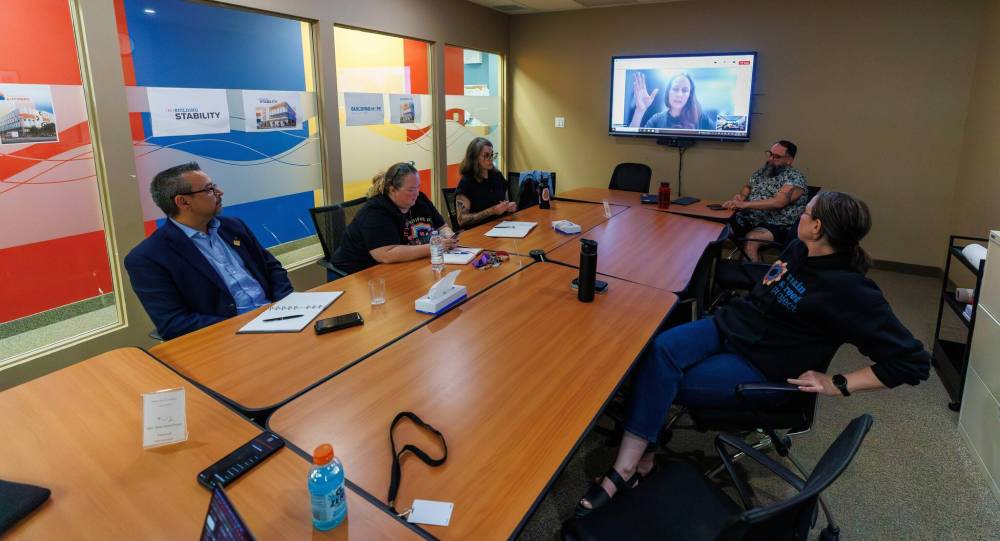Lifestyle
Coordinated Efforts Secure Housing for Winnipeg’s Homeless

Efforts to house over 30 individuals living in two encampments in Winnipeg intensified this summer as outreach groups, government officials, and housing facilitators collaborated to prevent their imminent eviction. This coordinated initiative highlights the urgent need for permanent housing solutions and support systems for vulnerable populations.
Collaboration in Crisis
The impending clearance of the encampments raised significant public concern and political pressure, prompting a swift response from various stakeholders. Leaders from three major outreach organizations—Main Street Project (MSP), West Central Women’s Resource Centre (WCWRC), and Resource Assistance for Youth (RAY)—met recently to discuss the crisis and the collaborative efforts that ensued. In attendance were representatives from the city and the provincial government’s encampment strategy.
Details of the discussions remain confidential to protect the individuals involved, but the meeting revealed a level of coordination that is often unseen by the public. This teamwork was crucial in ensuring the safety and well-being of those living in the encampments.
As the urgency of the situation increased, the need for immediate housing solutions became paramount. The plan prioritized not just shelter, but homes equipped with essential support services tailored to address diverse needs, including trauma and addiction.
Building Trust and Support Networks
Partnerships were vital in this initiative. For instance, N’Dinawemak, which operates a 220-bed shelter on Disraeli Freeway, leveraged established trust with encampment residents to explore viable housing options. Their staff worked diligently to provide immediate support, even as the organization was not expected to take charge of long-term operations.
WCWRC took on the responsibility of directly assisting one of the encampments. Their team was present daily, fostering relationships and guiding residents through available housing options. When relocation became necessary, WCWRC led the transition, ensuring that residents had the support they needed during the process.
“Building meaningful relationships is essential, especially among those who have experienced systemic harm,” said Lorie English, executive director of WCWRC.
The endeavor also involved the unit turnover committee, which included organizations like Oyate Tipi Cumini Yape, Sunshine House, and Siloam Mission. They coordinated to prepare the identified housing units, ensuring that they were move-in ready. This included providing essential items such as bedding, cookware, and cleaning supplies through what they termed “move-in kits.”
A daily update system helped maintain progress, allowing all parties to stay informed and responsive to the evolving needs of the residents.
The success of this initiative is evident; only one of the more than 30 people housed during this effort has left their new accommodation. This high retention rate is significant, as it underscores the importance of comprehensive support in preventing individuals from falling back into homelessness.
“People who have faced unsuccessful housing placements in the past are often hesitant to pursue new opportunities,” noted Tessa Blaikie Whitecloud, the province’s coordinator of the Your Way Home strategy, which aims to eradicate chronic homelessness by 2031.
Outreach teams emphasized the importance of understanding residents’ unique circumstances and needs. Jamil Mahmood, executive director of MSP, stated that offering choices to those being helped fosters a sense of control and trust.
“Residents need to feel cared for in their transition, rather than simply being relocated,” he explained.
The Your Way Home strategy, launched by Premier Wab Kinew in January, focuses on addressing the needs of the approximately 700 individuals living in encampments at the time of its announcement. In the first nine months, the initiative has successfully housed around ten percent of this population.
Despite criticism regarding the number of individuals housed, stakeholders believe that the approach prioritizes stability over sheer numbers. “It is essential to ask how many people remain in stable housing, rather than focusing solely on how many were moved,” English emphasized.
The collaborative effort has also highlighted the necessity for fully funded outreach teams, which are crucial for addressing homelessness effectively. Currently, MSP is the only organization with a city outreach contract, but it does not cover the full costs needed to operate a 24/7 mobile team, leaving significant gaps in service.
As discussions around funding and resources continue, the focus remains on fostering a community-driven approach to homelessness. “Collective care is vital, and without adequate funding, the ability to provide support diminishes,” English cautioned.
The ongoing work demonstrates that addressing homelessness requires not just housing, but a holistic approach that emphasizes trust, collaboration, and understanding the complexities of each individual’s situation. Through these efforts, Winnipeg is taking meaningful steps toward a more sustainable solution to homelessness.
-

 Politics4 weeks ago
Politics4 weeks agoSecwepemc First Nation Seeks Aboriginal Title Over Kamloops Area
-

 World5 months ago
World5 months agoScientists Unearth Ancient Antarctic Ice to Unlock Climate Secrets
-

 Entertainment5 months ago
Entertainment5 months agoTrump and McCormick to Announce $70 Billion Energy Investments
-

 Science5 months ago
Science5 months agoFour Astronauts Return to Earth After International Space Station Mission
-

 Lifestyle5 months ago
Lifestyle5 months agoTransLink Launches Food Truck Program to Boost Revenue in Vancouver
-

 Technology3 months ago
Technology3 months agoApple Notes Enhances Functionality with Markdown Support in macOS 26
-

 Lifestyle3 months ago
Lifestyle3 months agoManitoba’s Burger Champion Shines Again Amid Dining Innovations
-

 Top Stories2 months ago
Top Stories2 months agoUrgent Update: Fatal Crash on Highway 99 Claims Life of Pitt Meadows Man
-

 Politics4 months ago
Politics4 months agoUkrainian Tennis Star Elina Svitolina Faces Death Threats Online
-

 Sports5 months ago
Sports5 months agoSearch Underway for Missing Hunter Amid Hokkaido Bear Emergency
-

 Politics5 months ago
Politics5 months agoCarney Engages First Nations Leaders at Development Law Summit
-

 Technology5 months ago
Technology5 months agoFrosthaven Launches Early Access on July 31, 2025



















